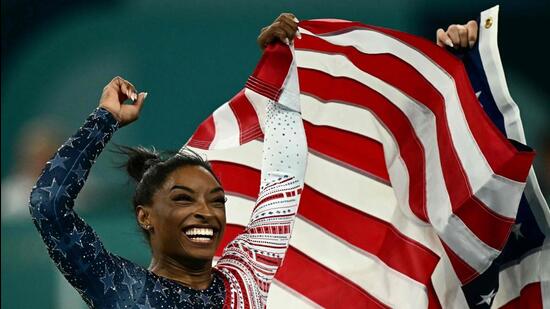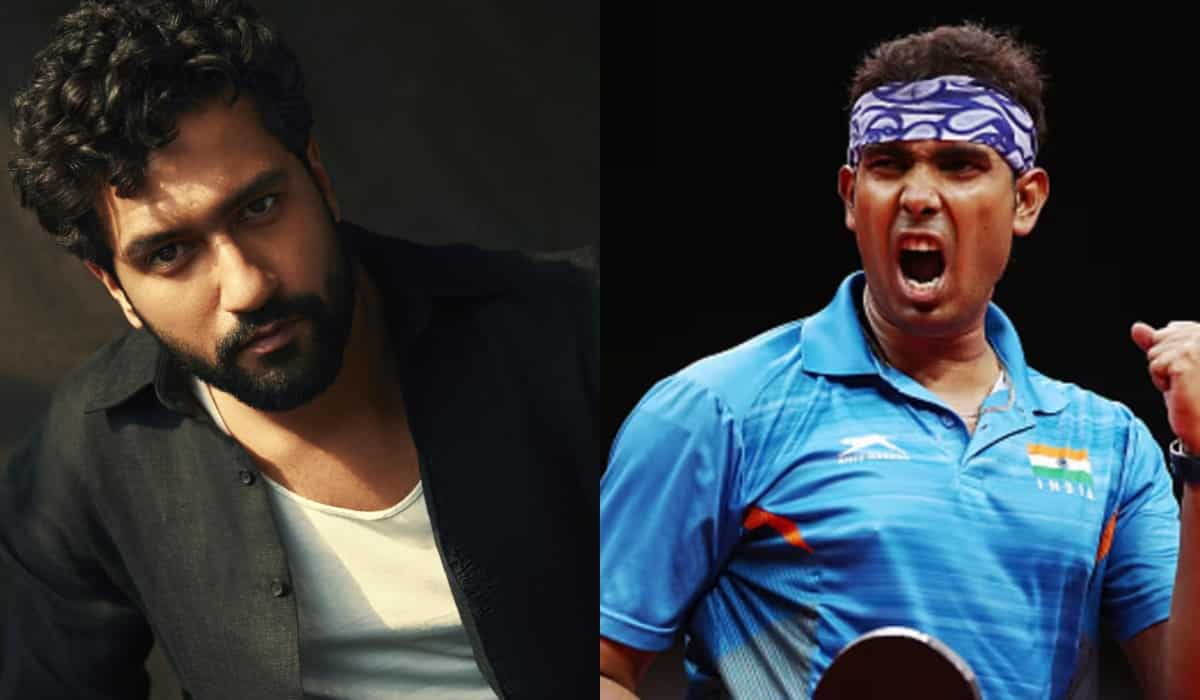
Simone Biles, Manu Bhaker and Olympic tales of redemption
8 months ago | 77 Views
New Delhi: On Tuesday, Simon Biles, the greatest gymnast of this generation and perhaps the best of all time, won her eighth Olympic medal for the USA. It made Biles her country’s most decorated gymnast. But the emotion she felt when her team won the team gold wasn’t joy. That came later.
“After I finished the vault I was relieved – I was like “woo, there’s no flashbacks”,” Biles, 27, said.
Most people didn’t need to be told why she felt that way. Flashbacks for her and the world mean her withdrawal from the Tokyo Olympics due to a condition called the ‘twisties’. It was one of the most written about events of the Games.
The Cleveland Clinic describes the twisties as “a mental block that creates a dangerous disconnect between mind and body while gymnasts are airborne.” At its absolute worst, the gymnast isn’t even sure of being able to land safely.
Suddenly, we were in a situation where the world’s best gymnast might never set foot in the Olympic arena.
At the Asaka shooting range in Tokyo, Manu Bhaker, a teen phenom, found that sport can be cruel but people are far crueller. Billed as India’s next big hope, she faltered and was trolled mercilessly. She and her malfunctioning pistol became the image of India’s failure at the shooting range. It made her want to give up the sport.
She was riddled with self-doubt. She wasn’t herself and kept thinking that she had to win. The pressure almost broke her, and when the Games ended shooting was farthest from her mind.
It takes about 1.8 seconds from the moment you jump from a diving board to the time you land in the pool. China’s divers have usually found a way to master that period. But in Tokyo, Tom Daley and Matty Lee of Britain totalled 471.81 points in the final, edging the Chinese Cao Yuan and Chen Aisen by 1.23 points.
The defeat ended China’s streak of four straight Olympic gold medals in men’s synchro platform dating to 2004. It proved to be the only gold China didn’t win in diving and an unprecedented clean sweep was denied. “We had some mistakes, especially in the fourth round,” Cao said through a translator. “We are quite disappointed.”
Disappointed was an understatement. China’s diving team is called the ‘Dream Team’ back home and they have contributed the most medals to their nation’s tally over the years.
But the path to redemption often begins with finding the joy in sport again. Putting something behind and moving on might seem easy for some but imagine doing something day in, day out and then stumbling with the finish line in sight. In the lead-up to Tokyo, Biles, for instance, would train for around seven hours a day, six days a week and often twice a day.
“I train seven hours a day, I do have Sundays off,” she had explained on The Tonight Show. “So, Monday, Tuesday, Wednesday, Friday I train twice a day. And then Thursday and Saturday I train once a day.”
It is all-consuming. Even when you are not training, you are still thinking about sport; about your routine; about recovery. And with the world watching, you collapse. A failure of that magnitude is heart-breaking and demoralising.
Mentally, a switch is flipped. You question your methods and all that goes with them. In Biles’ case, she took a hiatus of two years. Manu’s break was shorter — around 25 days — but her path back to the top was longer. Cao and Chen never stopped.
After winning bronze in the 200 meters at the Tokyo Games, American sprinter Noah Lyles knew he needed to change things.
“I needed to reflect on myself. What does it take to have enough confidence to go into a competition and say I’m going to win? That’s where I put in the hard work. That’s when I decided to make myself uncomfortable, jumping into events that are just not for me. This year I won a silver medal in the 60 meters at the Indoor World Championships. There are tons of people who claim I have a terrible start, but someone with a terrible start can’t win a silver medal in the 60 meters,” he asserted on Monday.
“The line between confidence and arrogance is very thin. It’s all an opinion. That’s why I always say that if you’ve seen my life and what I’ve had to go through, being told literally ‘you can’t do it’ most of my life, you wouldn’t speak that way. And here I am again. Achieving almost everything I set out to do,” he said.
Everyone has their own method. But finding the belief again is what takes longest. The journey changes them and gives them a new perspective, on life and on sport.
Sometimes, people don’t view those setbacks as opportunities but it is important to do that. For when you do that, you also give yourself to once again experience the joy of winning, just as Biles, Bhaker, and Cao and Chen have.
They are now the toast of their nations but only they know what it has taken to get to this peak... Again. And now, perhaps, they have reached a point where they can meet with triumph and disaster and treat those two imposters the same.
The Olympics, though, are not just about glory but they are, at a personal level, also about finding your way back. Everyone has their own redemption tale, and for some, just getting there counts as a win. After the depths of despair, you finally see the light and there can be no better feeling than that.
Read Also: Paris 2024: Manika Batra loses her ‘calmness’ and the match
#




















